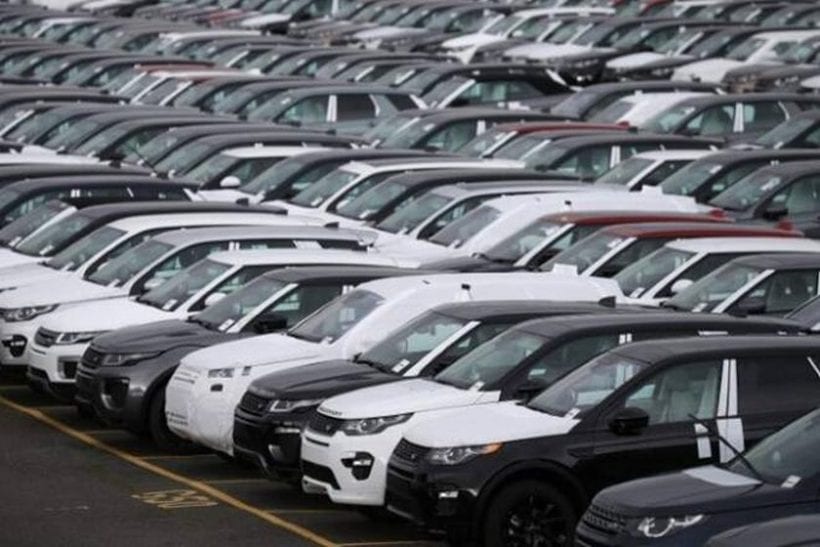Buying a new car is a process that requires prospective buyers to do their due diligence and research their potential investment. You know your purchase is going to depreciate, and that’s okay—most do. The point of buying a new car is not to store value or generate a monetary return on your investment, but a functionable and usefulness-related return on investment (ROI) instead.
The last thing a buyer would want is to purchase a brand-new vehicle, only to be faced with a list of mechanical issues within the first few years of ownership. After all, one of the main points of purchasing a new car is to avoid reliability concerns.
Beyond the car’s reliability itself, there are plenty of other things to consider that can easily go overlooked during the buying process. There are certain things you should be aware of, and questions you should be asking your dealer, before purchasing your next vehicle.

4 Basic Questions You Should Ask Your Car Dealer Before Buying A New Car
Finding the right dealer or dealership has to be one of the prime factors for buying a new car. It’s so important to research what kinds of cars are on the market, and who can give you the best deal for your money. A vehicle dealership should be competent and easy to work with.
Ultimately, you want to find a competent dealership that has a reputation for quality service over the years and enjoys doing business with their local customers. There are many all across the country. If you’re in New York, especially in the western portion of the state, Vision Hyundai Canandaigua is a good example.
Once you’ve taken the time to identify the dealership you plan on purchasing your vehicle from, you can begin to start the process of vetting the cars and asking your dealer these important questions:
1. What’s The Car’s Overall Reputation? What’s It Known For?
This may seem like a very general question, but it’s a very important one. If you’re considering purchasing a new vehicle, you’re going to be investing a significant amount of money into it. You want to be sure that the car is known for something relevant to what you need. Certain vehicles are branded for their reliability and longevity, while some are known for their fun or sportiness. Others may even have a great towing capacity and other working specs. The point is to ensure that the car’s calling card fits your needs.
If you’re searching for a family sedan that’s known for its relatively good reliability ratings and excellent safety, you shouldn’t worry too much about how sporty the car’s competitor is because that’s not your priority. Someone looking for a reliable vehicle that gets good gas mileage won’t be looking to buy a V8 sports car either. Check into the brand and what it’s good for. Focus your attention on those vehicles that will supply you with what you need.
Also pay attention to the dealerships who are reliable. Their customer service will clue you in as to what kind of service you’ll get if you have to bring your vehicle in for repairs.

2. How Is This Car Rated Amongst Those Who’ve Owned It Long Term?
Ask your dealer to give you some insights or show you some feedback from consumers who bought your potential new vehicle, or something similar, and kept it for the long haul. It’s easy to buy a brand-new vehicle and be impressed with it right away or even for the next couple years of ownership, but how does this car withstand the test of time? What will it be like 10 to 20 years from now?
Car reliability seems to be getting better and better, and while that can be comforting, that doesn’t mean that a car manufactured in 2020 is more reliable than something produced in 2004. There are various factors that come into play, which is why it’s important to check on the reliability of those who own older versions of the car.
Different generations of the same car can come with their own problems. Look for recalls, notorious issues, and distinct mechanical differences between the generational models.
3. What Are The Warranty Details On This Car?
Most new vehicle purchases come with a warranty on them. A warranty is essentially a guarantee by the manufacturer to take care of certain problems and maintenance that may need to be done within a certain time-frame of ownership. Most warranties will stipulate something in regards to a certain mileage limit or years of ownership. Warranties can include everything, from basic oil changes and brake jobs, to covering major repairs that occur due to inherent defects.
Each warranty is different, though, and it’s crucial that you examine the fine print of the contract rather intensely and with speculation. Many consumers don’t do this and end up assuming something is covered on their car that isn’t, ultimately being left to pay for the repairs themselves.
Your dealership can explain it to you best. They’re likely very familiar with the manufacturer and their warranties along with typical policies, or how things are usually handled. Ask them to explain the warranty to you in detail and make sure to obtain documentation in writing.
4. How Much Does It Cost?
The cost of a new car may be the paramount issue at hand to consider when you’re looking to finally purchase, but as you can clearly see, it’s just the tip of the iceberg. However, this doesn’t diminish the relevancy of the price point of a new car when you’re searching for the right one. It’s often just the deciding factor on whether to buy or not to buy.
Be sure to ask your dealer for clarification on the price. Things can get complicated when trying to understand “sticker price” and “MSRP,” or factoring in trade value, equity in your trade, financing, or paying in cash. The list goes on and on.
Make sure you’re clear and precise about the price of your car. Compare it to similar options to make sure it’s a good deal. Then, if you’re financing, be sure of the interest rate and your annual percentage rate (APR), ensuring they’re in line with your credit score and a fair percentage to be paying.

Fortunately, It’s Easier Than Ever
It’s easier than ever to do your own research and make sure you’re getting good information when it comes to buying your new car. With the abundance of online resources available to potential new car buyers, there’s little to no reason to find yourself in a confusing mess when it comes time to make a decision.
Utilizing your own research and comparisons in conjunction with the dealerships privy to insider knowledge will serve as a great combination to ensure you make the right choice.


